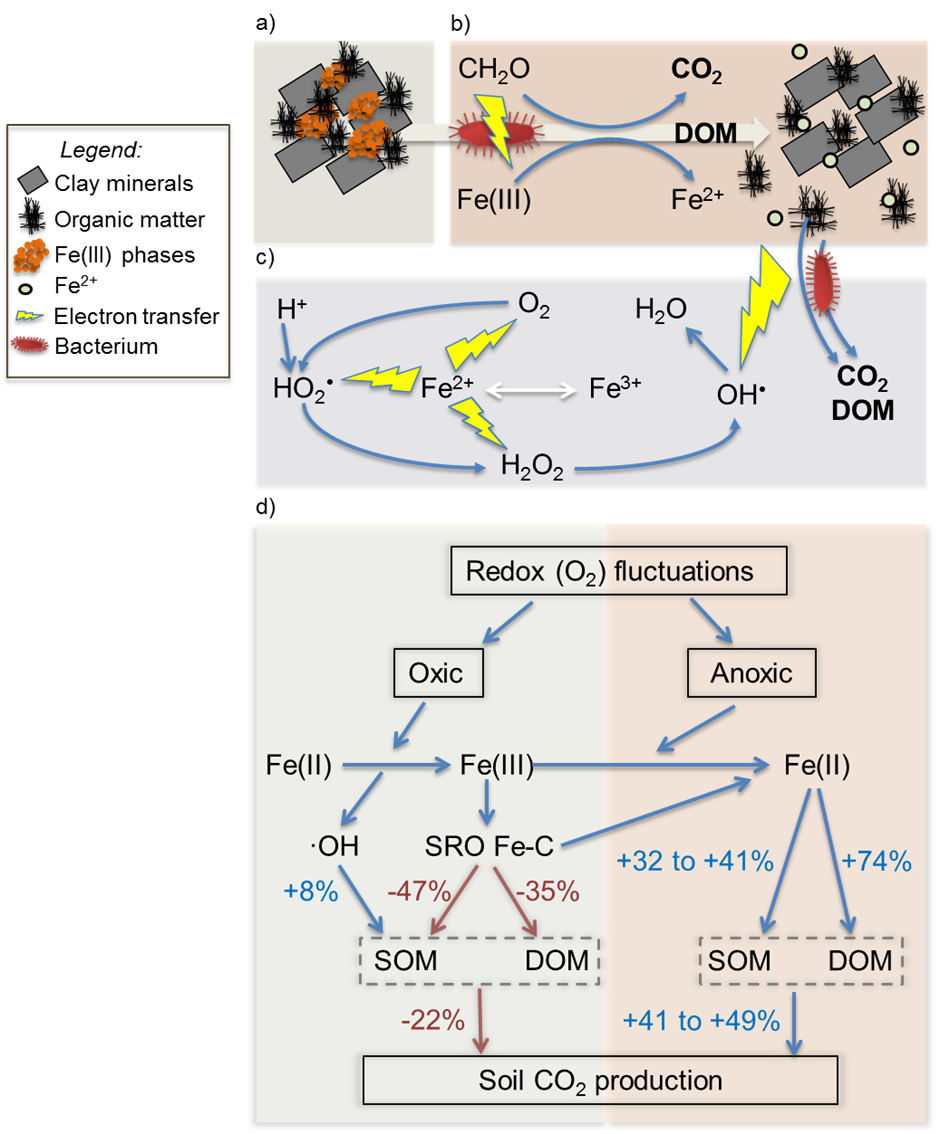Dr. Chunmei Chen from Tianjin University’s School of Earth System Science together with her collaborators from University of Georgia, Iowa State University and University of Delaware, have demonstrated that iron-mediated organic matter decomposition in humid soils can counteract its protection and their research result has been published in the journal Nature Communications under the title of Iron-mediated organic matter decomposition in humid soils can counteract protection (link:https://www.nature.com/articles/s41467-020-16071-5).
The net balance of soil carbon accrual vs. loss is key to future climate predictions. Soil organic matter is correlated with reactive iron in humid soils. However, soil iron plays multiple roles in ecosystem biogeochemistry aside from carbon protection, some of which also drive carbon loss. The common perception of iron’s role in soil organic matter has largely focused on Fe-mediated organic matter protection via adsorption, co-precipitation, or aggregation, but it is also recognized that iron oxidation and reduction can promote carbon release and mineralization. Quantifying the tradeoffs among these functional roles remains a critical knowledge gap for understanding the persistence or potential losses of iron-associated carbon under climate and land-use change.

The research, led by Drs. Chunmei Chen and Aaron Thompson, quantified the relative contributions of iron in retarding and accelerating carbon loss in soil slurries. Soil slurries were amended with 57FeII and/or 13C-dissolved organic matter under anoxic conditions and incubated under either static oxic or alternating oxic/anoxic treatments. A novel dual isotope approach was employed to distinguish between native soil organic matter and fresh plant-derived dissolved organic matter via 13C labeling, as well as between neo-formed reactive Fe minerals formed in situ and the different forms of Fe minerals in the native soil via 57Fe labeling coupled with 57Fe Mössbauer spectroscopy.
This study highlights that iron’s electron transfer roles can largely counteract the protective effect of reactive Fe-organic matter associations and sustain carbon decomposition in redox-dynamic systems. Periodic O2 limitation is common in humid soils, so iron does not intrinsically protect organic matter; rather reactive iron phases require their own physiochemical protection to contribute to organic matter persistence.
By the School of Earth System Science
Editor: Eva Yin






